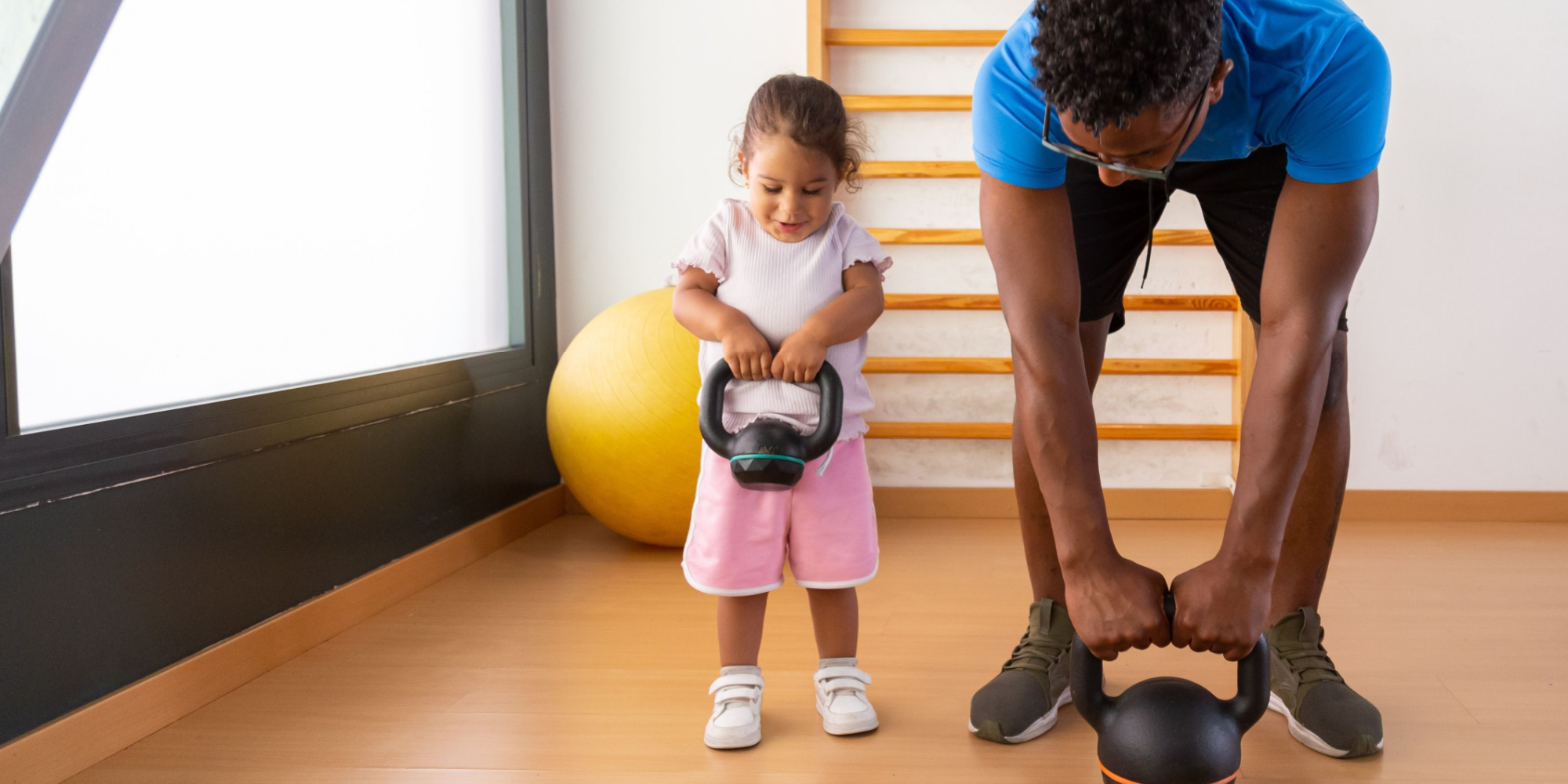How Young Can a Child Begin Lifting Weights?
Jul 28, 2023 mindpumpThere are a lot of mixed messages out there when it comes to when a child can start lifting weights. Some experts will say that putting too much strain on an adolescent’s muscles is too much for developing bodies, specifically areas of cartilage that haven’t turned to bone (growth plates). On the other side of the argument, weight training and fitness is recommended during an age when obesity is on the rise for not just adults, but children as well.
So what do we do?
I first just want to say that lifting weights and working out should come from a positive place; making the workouts focused on aesthetics and losing a certain amount of weight can make the process a chore for a child not truly interested in the activity. With this in mind, it is important to make sure the intensity reflects their current fitness level, and that they are enjoying it.
You want them to look at fitness, building strength, and taking care of their health as something they would want to carry through into adulthood.
Now, how young can they start picking up weights?
Some studies show that kids as young as six can start lifting weights, but there are some things to consider.
For starters, proper training and education is a must. As with most things in life, you shouldn’t just throw them into a weight room and tell them, “good luck.” It is vital to train them on proper form, and have someone supervise them at all times.
Another factor to consider, which I touched on earlier, was intensity. Yes, some kids can build up to lifting some pretty heavy weight, but that comes with time and a lot of practice. And as with adults, lifting too much, too often, can lead to overtraining injuries that can affect them as they get older. Children can be tested and trained on a 1-RM (which applies to those who are heavily experienced and supervised), but kids in general will benefit most from staying in a high rep-range and 1–3 sets for each exercise. Improving strength is a benefit of weight training for kids, but the greatest gains are found in proper movement training and control, which comes from light to medium resistance exercises.
Speaking of injuries, there are skeletal risks to consider. When appropriately designed, training programs have no apparent negative effect on growth, physical health, or the cardiovascular system. However, constant, explosive training while playing sports or lifting weights can increase the risk of an avulsion fracture, due to the fact the skeleton hasn’t reached full maturity.
Just remember, gradual progression is key. Learning lifts can start with a dowel, which can then be advanced to unloaded or light barbell movements. Proper technique from the start is what will help young athletes and lifters succeed later in their training endeavors.
For an added bonus, below are some additional health and performance benefits children gain from lifting weights.
Health and Performance Benefits
- Improvements in motor skills
- Reduces the risk of injury (when properly trained)
- Gains in speed and power
- Increase in strength that can transfer to advanced skill in sport
- Improvement in muscular endurance and cardiovascular fitness
- Enhancement in bone mineral density
- Improvement in body composition and mental health
- Better blood lipid profiles
- Increases the likelihood of engaging in more general physical activity







